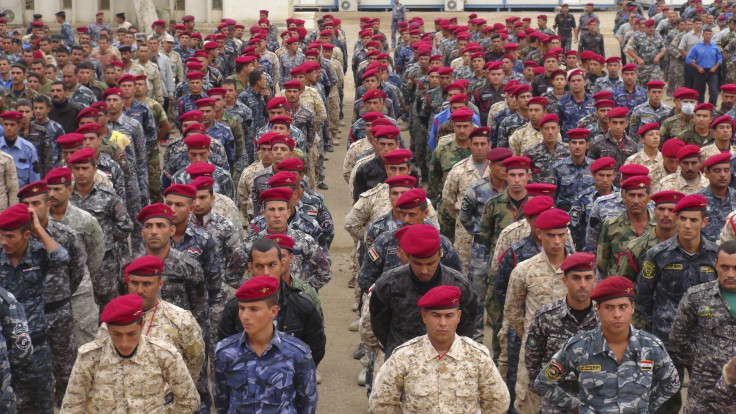Iraq's Western Sunni Tribes Are Organizing Into Militias To Fight ISIS

Sunni tribesmen in Iraq are forming their own militias, with U.S. support, to fight the Islamic State group in the western part of the country. The development is reminiscent of the so-called Sunni Awakening that helped U.S. troops fight al Qaeda in Iraq during the American occupation.
The central government has relied heavily on Shiite militias to defend Baghdad, but the Sunni militias that are forming are becoming increasingly important to the defense of the capital. They are fighting to keep control of their lands, so they are stopping the Islamic State from taking over Anbar, the province west of Baghdad that leads directly to territory in Syria controlled by the group also known as ISIS or ISIL.
The Sunni tribes have for the most part armed themselves, buying weapons and ammunition from Iraqi soldiers and Shiite militia fighters. They have received a few small shipments from the central government. A source close to one of the largest new Sunni militias in Anbar, who requested to remain anonymous for security purposes, said the Sunni militias are "being systematically armed" by the U.S. and Iraqi governments.
"There was an unannounced meeting between tribal leaders and senators in D.C. last week," he said. Leaders of the Sunni militias in Anbar warned at the meeting that if they do not receive more weapons from the U.S., they will not be able to continue fighting the Islamic State group. Leaders of the Sunni Albu Nimr tribe, which is currently recruiting Sunnis in Anbar to join the fight against ISIS, said this week that the tribe only has enough ammunition to fight for one more week.
A Kurdish news outlet, Rudaw, reported last week that the U.S.-led coalition had approved the formation of a 50,000-troop tribal force in the western part of the country to fight ISIS. The chairman of Anbar's provincial council, Sabah Karhout, said the coalition would "bear the expense of training and arming" the tribal force. But another report by Rudaw said the Iraqi government would organize the force.
According to reports from within Sunni militia ranks in Anbar, each Sunni tribe has multiple officials but only one true leader. The tribal leaders vary in their power according the number of people in the tribe and its wealth.
Iraq's Sunni-backed al-Wataniya bloc warned this week that arming tribes would lead to a civil war. “Arming the tribes and militias indicates the government’s failure in creating efficient security forces,” said a statement released by the political coalition. Weapons should only be in the hands of government forces, it said.
Sunnis in Iraq began organizing themselves into informal groups to fight ISIS after the militant group advanced into parts of the country in June. International Business Times reported then that some Sunni men were fighting independently from ISIS against the government simply because they wanted Prime Minister Nouri al-Maliki, a Shia, out of power. Similar to their fellow Sunnis in ISIS, they were vehemently opposed to the Shia-dominated government in Baghdad. Those Sunni fighters are separate from the ones now organizing in the west to fight ISIS.
© Copyright IBTimes 2024. All rights reserved.











